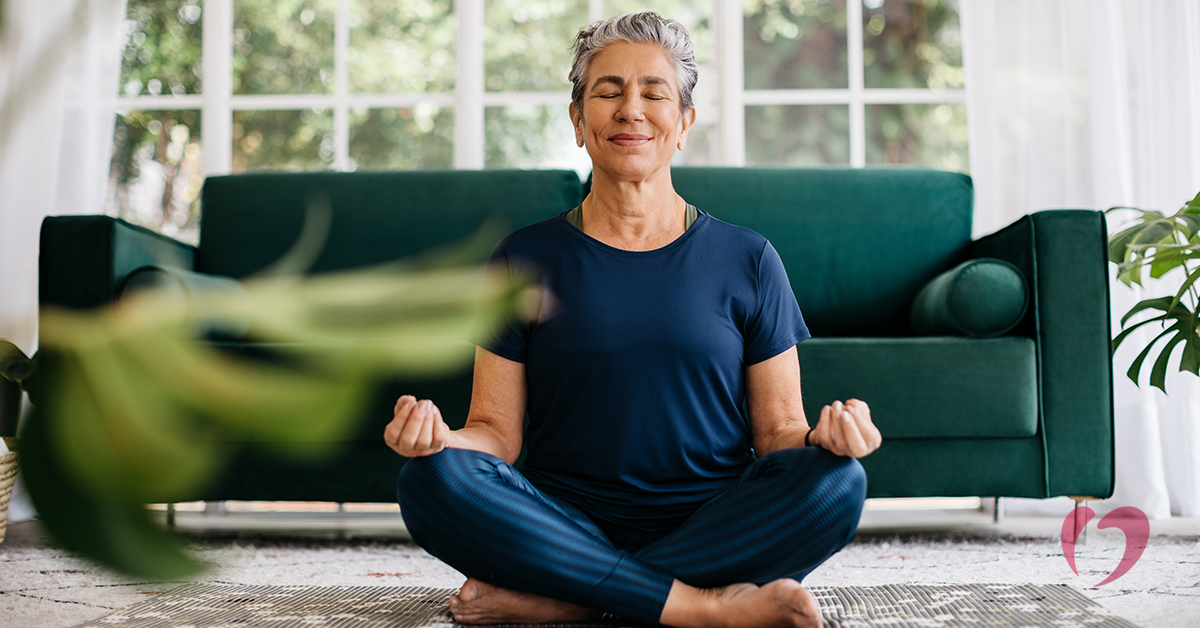Exploring Complementary Therapies for Heart Rhythm Disorders

Many patients with heart rhythm disorders are curious about whether practices like yoga, meditation, acupuncture, or supplements can help them feel better. While complementary therapies for heart rhythm disorders cannot replace medical care, they may offer additional support when used safely and thoughtfully.
At the Oklahoma Heart Hospital’s Heart Rhythm Institute, we believe in treating the whole person and that includes understanding how stress, lifestyle, and emotional well-being influence heart health. Here’s what you should know about complementary and alternative therapies for heart rhythm disorders.
Common complementary therapies for heart rhythm disorders
Wellness therapies that calm the nervous system may help reduce the frequency or severity of triggers for heart rhythm disorders. They also support better sleep, lower blood pressure, and improve mental wellness, all of which can benefit your heart’s health.
Here are a few of the most common complementary therapies that may be helpful for people with arrhythmias:
• Yoga – Gentle yoga can help reduce stress, improve flexibility, and support healthy breathing. Many patients find that yoga helps them feel calmer and more centered. Choose slow, restorative classes and always avoid positions that make you feel lightheaded or strained.
• Meditation and mindfulness – Practicing mindfulness or guided meditation helps quiet the mind and body. Even five minutes a day can improve focus and ease tension. These practices are particularly helpful for people who experience anxiety about their symptoms.
• Deep breathing exercises – Slow, intentional breathing helps regulate the nervous system and calm the body. Diaphragmatic or belly breathing is often used to reduce anxiety and promote relaxation.
• Acupuncture – This traditional Chinese medicine technique involves placing thin needles at specific points on the body to help restore balance. Some patients report reduced AFib symptoms or improved stress levels after acupuncture, though research is still ongoing.
• Massage therapy – While not appropriate for everyone, massage can help relieve muscle tension and promote relaxation. Be sure to talk to your cardiologist if you’re considering massage, especially if you have a pacemaker, blood clot risk, or other cardiac conditions.
Know what’s safe and what isn’t
While some complementary therapies are safe for most patients, others may pose risks depending on your condition, medications, or implanted devices. For example, acupuncture may not be safe if you’re taking blood thinners. High-intensity exercise or hot yoga could trigger symptoms for those with certain arrhythmias.
Similarly, dietary supplements and herbs can sometimes interfere with heart medications, even if they’re marketed as natural.
Always work with licensed professionals who are aware of your heart condition, and keep your cardiology team informed about any new therapies you’re considering. Complementary care works best when integrated into your medical plan, not added on without guidance.
A thoughtful approach to supportive care
Complementary therapies for heart rhythm disorders can be a valuable part of your care plan, but they are not a substitute for medical treatment. Arrhythmias are complex conditions that require proper diagnosis, monitoring, and care from a heart specialist.
If you’re considering therapies like yoga, acupuncture, or supplements, talk with your cardiologist first. At the Oklahoma Heart Hospital’s Heart Rhythm Institute, we help patients understand their condition, reduce risk factors, and make informed choices that support their overall well-being.
When you’re ready to learn more, we’re here to help create a care plan that keeps you safe and supports the way you want to feel. Schedule a consultation to learn more.
